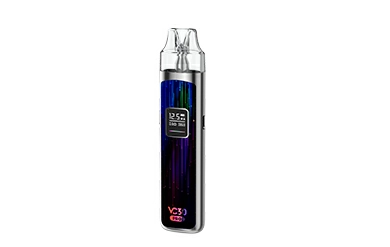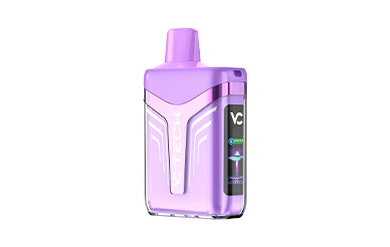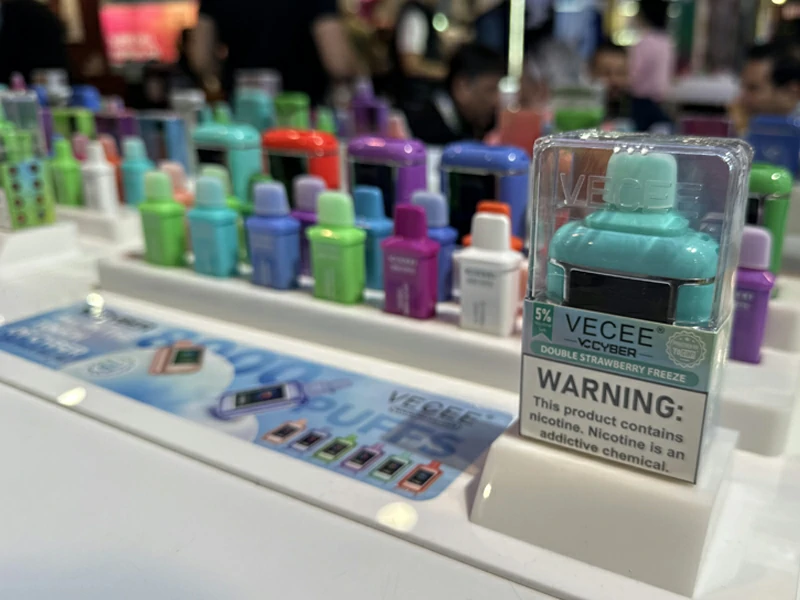1. Spain launches consultation on vape flavor ban
The Spanish government plans to ban flavored vape products and has launched a 15-day consultation to collect public opinions on parts of the plan, including the flavor ban. The consultation will end on April 23.
Eight European countries have already passed laws banning vape flavors: Denmark, Estonia, Finland, Hungary, Lithuania, the Netherlands, Slovenia and Ukraine, all of which are EU members except Ukraine.
2. A major vape case involving over 100 million yuan was uncovered in Zhejiang, China
On April 13, reporters learned from the Zhejiang Provincial Tobacco Monopoly Bureau that the province’s Shaoxing Tobacco Monopoly Bureau and the Keqiao District Branch of the Shaoxing Municipal Public Security Bureau had successfully cracked a case involving the production, transportation, storage, and sales of counterfeit products throughout the industry chain. The case of counterfeit and inferior e-cigarettes involves more than ten provinces (autonomous regions and municipalities) across the country.
In this case, one illegal manufacturer was destroyed, two vape production lines were destroyed, and 40 production equipment, 35,457 disposable vapes, 30,310 cartridges, 2,912 smoking accessories, 428.55 kilograms of e-liquid, 1.016 million vape accessories, and 3.3 outer packaging boxes were seized. Ten thousand, the physical case value is more than 10 million yuan, and the amount involved in the case is verified to be over 100 million yuan.
At present, 31 criminal suspects have been subject to criminal compulsory measures by the public security department in accordance with the law, and the case is under further investigation.
3. Philip Morris International spent 8.8 billion pesos to build a factory in the Philippines
On April 15, tobacco giant Philip Morris International unveiled its new smokeless tobacco product manufacturing plant in the Philippines, costing up to 8.8 billion Philippine pesos (approximately US$153 million). This is also the largest investment in the smokeless new tobacco category in the Philippines to date. invest.
The factory is located in the campus of PMFTC, a local subsidiary of Philip Morris International, in Tanauan, Batangas City. The factory covers an area of 12,360 square meters. It is expected to be put into operation within the year and can produce 3.5 billion heated tobacco cartridges annually.
4. The US FDA issued a ban on 65 disposable vape models
On April 15, the U.S. FDA issued a marketing denial order (MDO) to a company in Shenzhen, China, for 65 disposable vapes called “MNGO Disposable Stick”, including tobacco, menthol, pink lemonade, strawberry mango, and watermelon jelly. , iced banana and other flavors. This means that the company is not allowed to market or distribute these products in the United States or risk FDA enforcement action.
5. The global tobacco packaging market may reach US$19.09 billion in 2030
Market research organization SNS Insider recently released a report showing that the global tobacco packaging market is expected to reach US$19.09 billion by 2030, with a compound annual growth rate of 3.5% from 2023 to 2030. An important factor driving the growth of the tobacco packaging market is the increase in sales of new tobacco products such as vape.
6. Uzbekistan plans to ban vapes and heated tobacco
According to foreign media reports, the Ministry of Health of Uzbekistan has proposed to ban the circulation of vape products, e-liquids and heated tobacco products in the country, and published a draft law on the Uzbekistan portal. The Ministry of Health has also proposed imposing administrative and criminal liability for violations of the ban – ranging from a fine of $1,000 to five years in prison.
7. The UK plans to introduce the world’s strictest tobacco ban
The Sunak government’s anti-smoking plan for the younger generation in the UK made important progress this week, with the “Tobacco and Vape” bill passing the second reading in the House of Commons. When the bill is finally implemented, British people born after January 1, 2009 will become the “smoke-free generation”, and the ban will accompany this generation indefinitely.
Although the name of the bill contains e-cigarettes, the British government’s position is not to ban e-cigarettes, but to adopt stricter restrictions. The bill would give the government the power to restrict the flavors and packaging of e-cigarettes, as well as how they can be displayed in stores.

















0 Comments